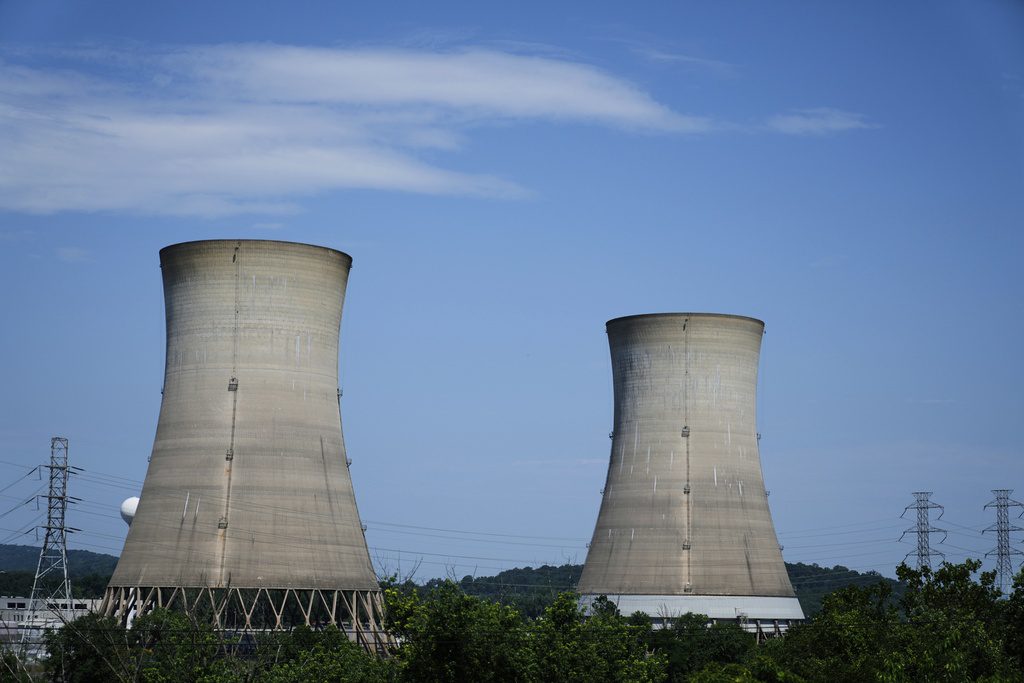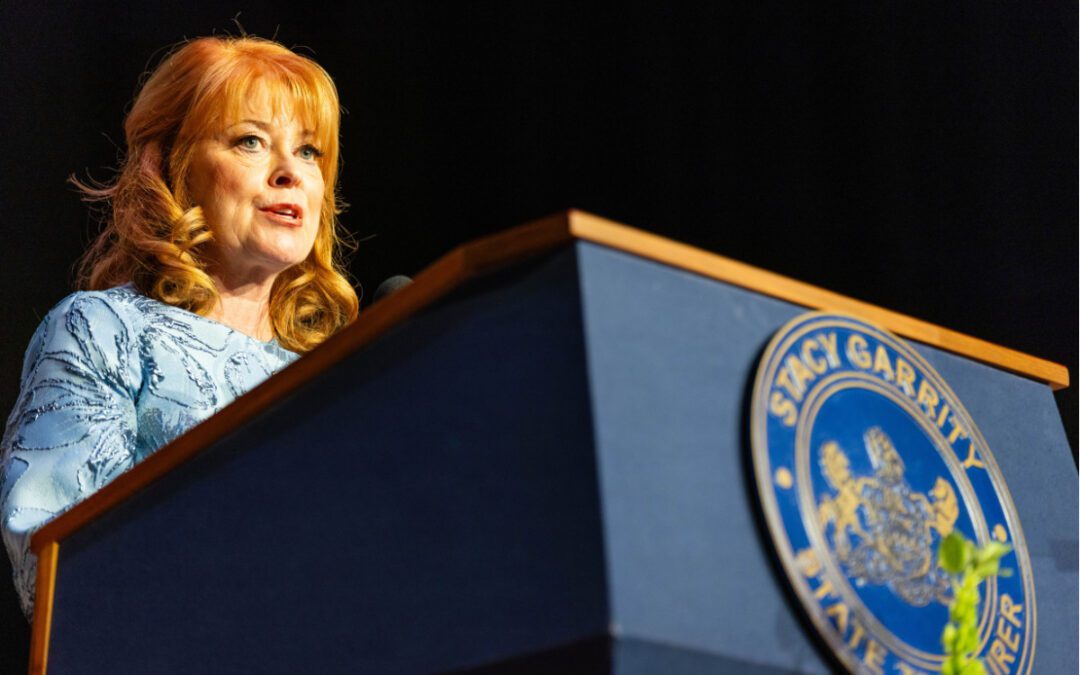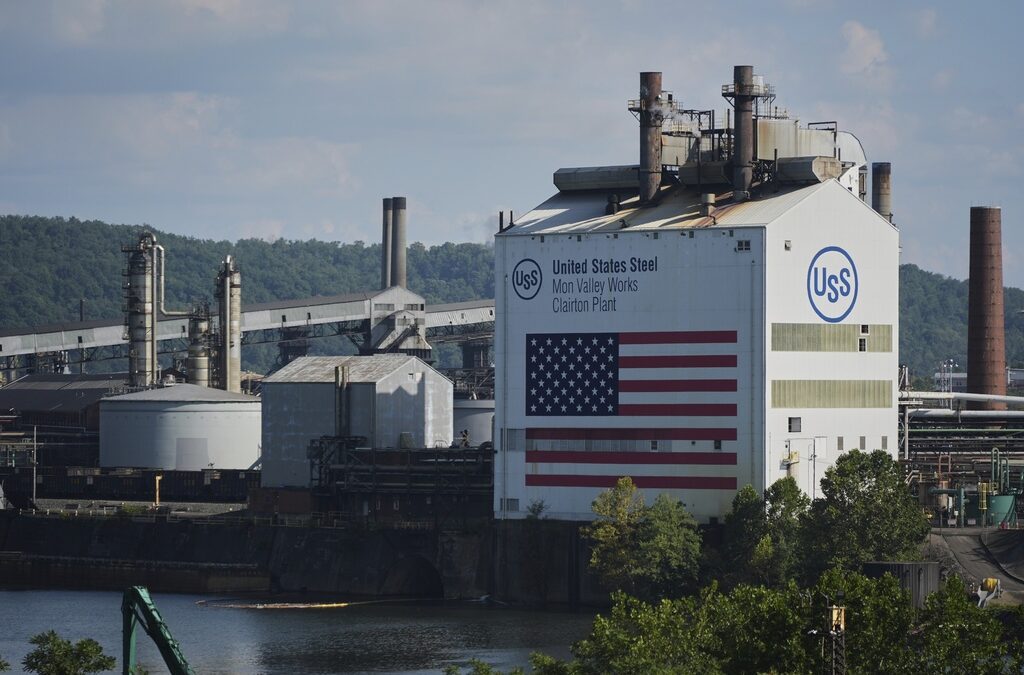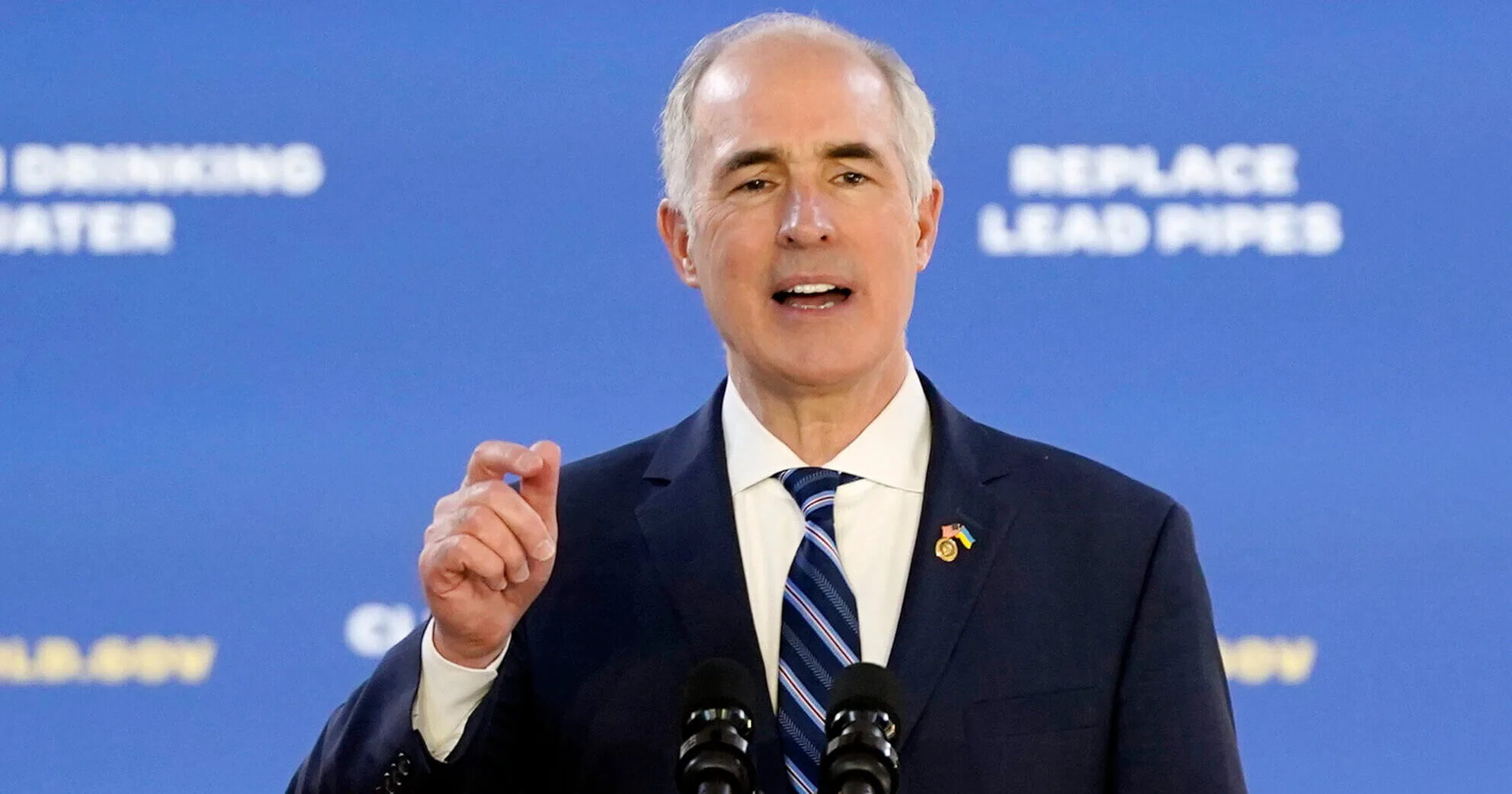
Cooling towers at Constellation's nuclear power plant stand on Three Mile Island near Middletown, Pa., on Wednesday, June 25, 2025. (AP Photo/Stephanie Scarbrough)
As an industrial city and an incubator for artificial intelligence, Pittsburgh is uniquely positioned to lead the world, as AI-powered systems move out onto highways, factory floors and battlefields.
Joanna Doven, executive director of the city’s AI Strike Team, said the Steel City’s academic, manufacturing and health care, combined with its high quality of life and low cost of living put it in a unique position to catch the next wave of the AI revolution.
“Physical AI isn’t just the next tech buzzword. It’s an entirely new category of industry,” Doven said Monday at the Pennsylvania Press Club luncheon, where she was the featured speaker.
“These are intelligent systems that move, sense, adapt and act in real time in the physical world,” she said. “We’re talking about autonomous vehicles, submarines, defense systems, AI powered manufacturing, industrial robotics, and next generation energy systems.”
The new industry is about to have a “hockey stick moment,” describing the shape of its growth curve, with value projected to increase nearly ten-fold by 2030, Doven said.
“This is not just market evolution, it’s market creation. And here’s the best part … no region or state has claimed ownership of this new industry. Pittsburgh and Pennsylvania must be first,” she said.
Next month, the city will host the AI Horizons Pittsburgh summit, Doven announced, where industry and government leaders will discuss how to help Pennsylvania capitalize on strengths that are attractive to the physical AI industry.
Doven said the summit would focus on how the state can build a network to incentivize and support physical AI development and production in Pennsylvania with state and federal initiatives through Small Business Administration loans and public investment.
Speakers will include Martial Hebert, dean of the School of Computer Science at Carnegie Mellon University, which Doven described as the world’s No. 1 AI school. Democratic Gov. Josh Shapiro and U.S. Sen. Dave McCormick (R-Pa.) are also slated to participate, she said.
The announcement came nearly two weeks after McCormick hosted an energy and innovation summit at CMU, attended by President Donald Trump and several of his cabinet secretaries. It also featured panels with heads of energy, tech and investment firms, who announced an aggregate $90 billion in investments to develop Pennsylvania’s energy supply and infrastructure to support data centers that power AI.
Doven, who served as press secretary to former Pittsburgh Mayor Luke Ravenstahl, said she saw the beginnings of the city’s AI hub following the redevelopment of a former Nabisco Baking Co. bakery in the East End neighborhood.
AI companies that were spinning off of CMU’s robotics program began to lease space in the building, known as Bakery Square. In the office space glut of the post-COVID 19 pandemic era, Doven persuaded her clients to brand the building as an AI hub. That led to a working group of tech developers, city, county and state officials that became the AI Strike Team, she said.
While AI companies lead the city in attracting venture capital, Doven said, investment in the field is still centered on the “tech bro network of Silicon Valley.”
“The challenge we must face is this, too many of our best companies still migrate west for late stage capital. This is across Pennsylvania,” she said. “We birth the innovation here, and they, out west, capture the value.”
Unlike purely software companies, where employees can be based anywhere, physical AI companies and their workers need to be near where their products are made, tested and deployed, Doven said.
“They need to be near steel mills, near defense contractors and ship builders, near energy infrastructure and power plants. You can’t test a nuclear inspection robot from a We Work office in San Francisco,” she said.

Pennsylvania nurses get union election despite Trump’s delays at labor board
This story was originally published by Capital & Main. Nearly 1,000 registered nurses at a Pittsburgh hospital will vote on joining a union...

Republican Stacy Garrity seeks to challenge Pennsylvania Gov. Josh Shapiro’s reelection bid
HARRISBURG, Pa. (AP) — Stacy Garrity, Pennsylvania’s two-term elected state treasurer, said Monday that she will seek the Republican nomination to...

Air quality concerns linger in the wake of steel plant explosion in Pennsylvania
The Pennsylvania county where an explosion at a U.S. Steel plant south of Pittsburgh killed two people and injured more than 10 others announced...

Massive rescue effort led to pulling workers from debris of Pennsylvania steel plant explosion
Moments after an explosion erupted at a U.S. Steel plant outside Pittsburgh, company firefighters, local responders and employees raced in to rescue...

An explosion at a plant owned by US Steel, an icon of American industry, has killed 2. What to know
An explosion at a U.S. Steel plant south of Pittsburgh killed two people and injured 10 others. The CEO has vowed to find out what caused Monday's...




